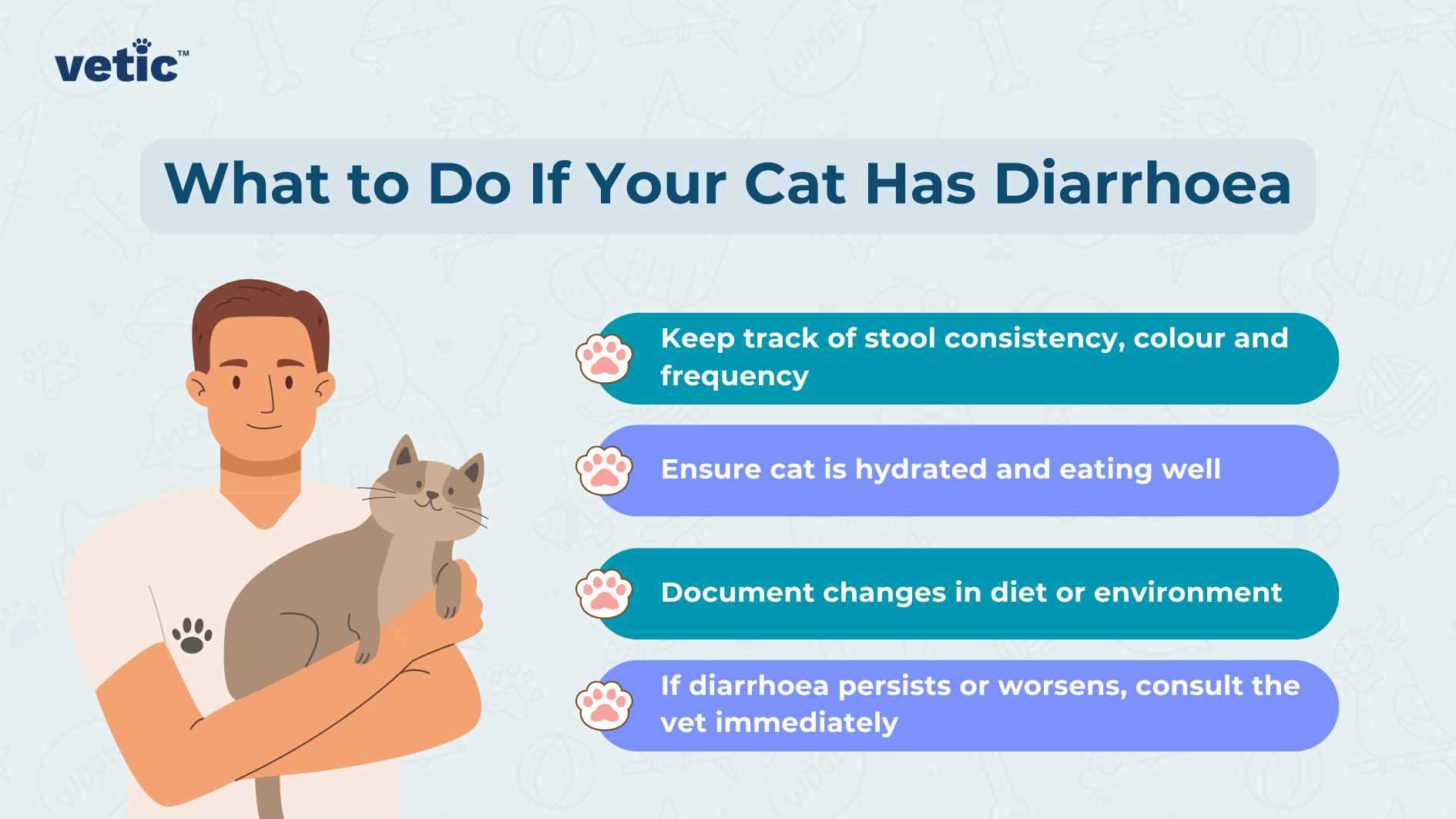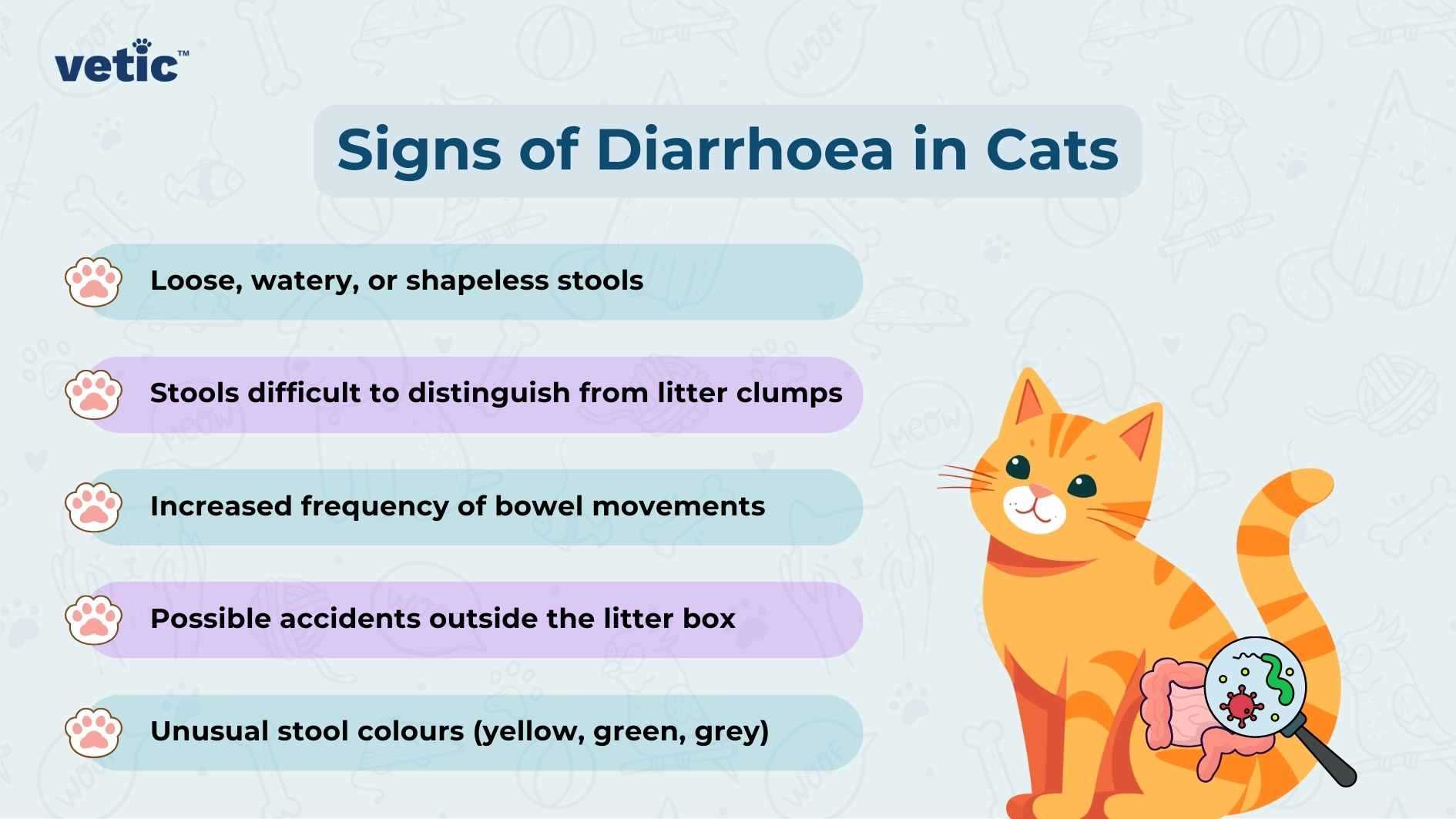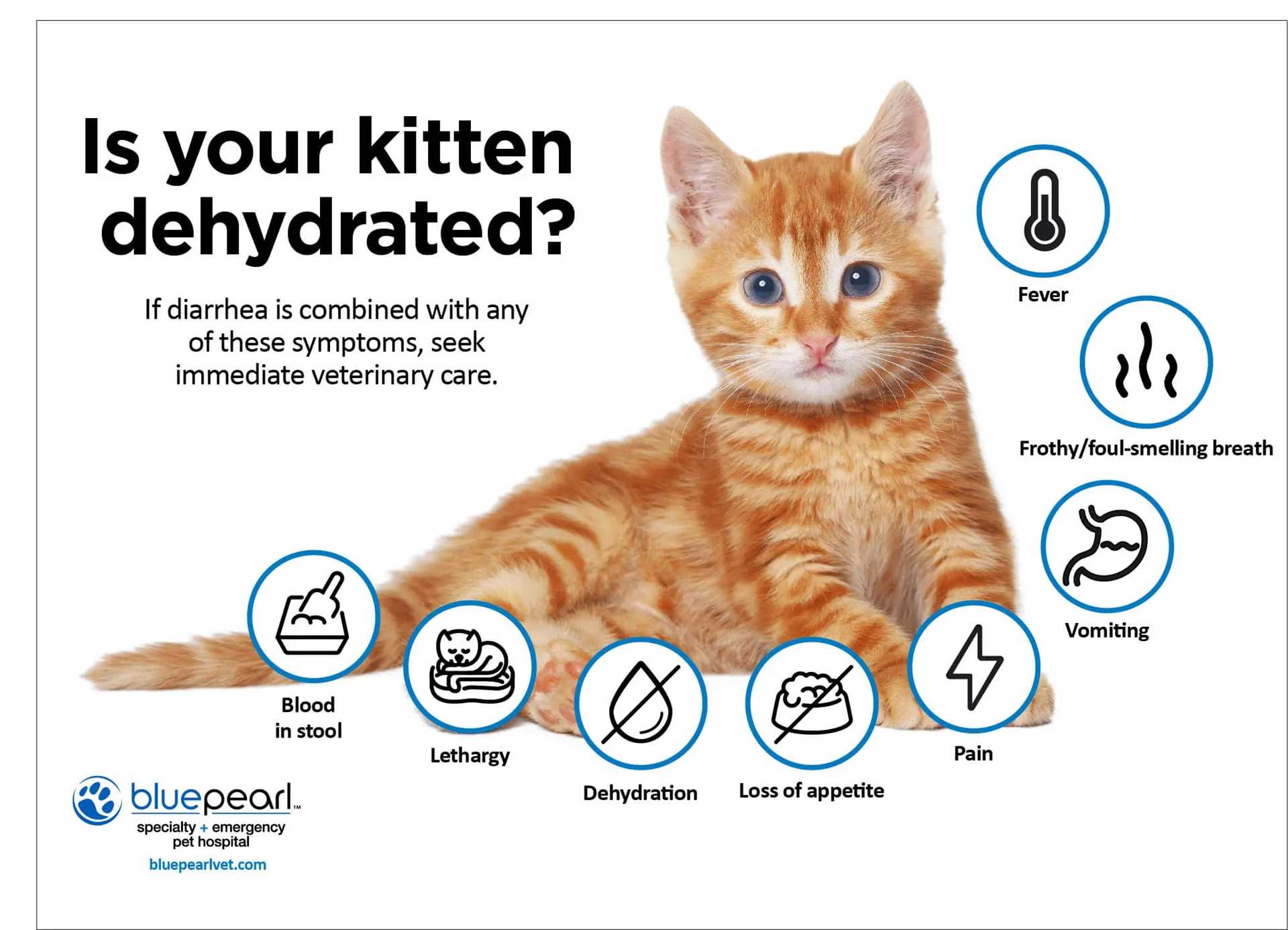

To identify the source of loose stools, it’s crucial to monitor dietary habits closely. A sudden change in food, whether it’s a new brand or an introduction of human snacks, can upset the digestive system. Stick to high-quality, age-appropriate cat food to minimize risks.
Another factor to consider is the presence of parasites. Regular veterinary check-ups and stool tests can help detect any unwelcome guests in the gut. Treatments are available that can quickly restore balance.
Environmental stressors also play a significant role. Changes in surroundings, such as moving to a new home or the arrival of a new pet, can trigger gastrointestinal disturbances. Creating a calm and stable environment is key to maintaining digestive health.
If symptoms persist, consulting with a veterinarian is essential. They can recommend specific tests and treatments tailored to individual needs. Keeping a diary of eating habits and bowel movements can provide valuable insights for both you and your vet.
What Causes Loose Stool in Felines

Switching my food can lead to messy situations. My tummy doesn’t always agree with abrupt changes. Gradually introducing new kibble over a week helps avoid surprises.
Sometimes, I nibble on plants or human snacks. Certain foods, like dairy or chocolate, aren’t friendly to my digestive system. Keeping an eye on what I munch ensures I stay comfortable.
Stress is a sneaky culprit. New environments, loud noises, or changes in routine can upset my stomach. Providing a cozy, quiet space helps me feel secure.
Parasites like worms are another concern. Regular check-ups and preventative treatments keep them at bay. If I show signs of discomfort, a vet visit is a must.
Lastly, infections from bacteria or viruses can disrupt my digestive harmony. Keeping my litter box clean and ensuring fresh water is available are simple steps that contribute to my overall health.
Common Dietary Causes of Loose Stools in Felines

Switching to a new food can lead to upset tummies and loose stools. Gradually introducing new meals over a week can help ease the transition. Always monitor how your body reacts to any changes.
Low-Quality Ingredients
Meals filled with fillers, artificial additives, and low-quality proteins can disrupt digestive health. Look for high-quality, meat-based products with minimal processing. Reading labels is key.
Food Intolerance

Some of us may develop sensitivities to specific ingredients, such as grains or certain proteins. If you notice signs of distress after eating certain foods, consult your vet. They may recommend elimination diets to pinpoint the culprit.
Also, remember that certain human foods are toxic. Foods like chocolate, onions, and garlic can lead to severe health issues. Always stick to vet-approved treats!
If you’re curious about sedation effects, check out this link: how long does sedation last in cats.
Health Issues Leading to Loose Stools in Felines
Regular vet check-ups are crucial for identifying underlying health conditions that can result in loose stools. Parasites, such as worms or protozoa, are common culprits. A fecal examination can help detect these invaders, and appropriate deworming treatments can restore digestive balance.
Infections, whether bacterial or viral, can severely impact gastrointestinal health. Conditions like feline panleukopenia or bacterial enteritis require immediate veterinary attention. Vaccinations and proper hygiene can help prevent these infections.
Inflammatory bowel disease (IBD) is another serious concern that may lead to chronic issues. It occurs when the intestines become inflamed, disrupting nutrient absorption. A veterinarian can recommend dietary changes and medications to manage this condition effectively.
Allergies or sensitivities to certain foods, beyond just diet changes, can trigger digestive distress. A hypoallergenic diet may be necessary to identify and eliminate problematic ingredients. If you’re curious about the safety of specific items, check if is coconut oil toxic for cats to ensure nothing harmful is included in meals.
Lastly, stress can also lead to gastrointestinal upset. Changes in the environment, new pets, or loud noises can impact a feline’s mood, resulting in digestive issues. Creating a calm space can help mitigate these effects.
Video:
To identify the source of loose stools, it’s crucial to monitor dietary habits closely. A sudden change in food, whether it’s a new brand or an introduction of human snacks, can upset the digestive system. Stick to high-quality, age-appropriate cat food to minimize risks.
Another factor to consider is the presence of parasites. Regular veterinary check-ups and stool tests can help detect any unwelcome guests in the gut. Treatments are available that can quickly restore balance.
Environmental stressors also play a significant role. Changes in surroundings, such as moving to a new home or the arrival of a new pet, can trigger gastrointestinal disturbances. Creating a calm and stable environment is key to maintaining digestive health.
If symptoms persist, consulting with a veterinarian is essential. They can recommend specific tests and treatments tailored to individual needs. Keeping a diary of eating habits and bowel movements can provide valuable insights for both you and your vet.
What Causes Loose Stool in Felines

Switching my food can lead to messy situations. My tummy doesn’t always agree with abrupt changes. Gradually introducing new kibble over a week helps avoid surprises.
Sometimes, I nibble on plants or human snacks. Certain foods, like dairy or chocolate, aren’t friendly to my digestive system. Keeping an eye on what I munch ensures I stay comfortable.
Stress is a sneaky culprit. New environments, loud noises, or changes in routine can upset my stomach. Providing a cozy, quiet space helps me feel secure.
Parasites like worms are another concern. Regular check-ups and preventative treatments keep them at bay. If I show signs of discomfort, a vet visit is a must.
Lastly, infections from bacteria or viruses can disrupt my digestive harmony. Keeping my litter box clean and ensuring fresh water is available are simple steps that contribute to my overall health.
Common Dietary Causes of Loose Stools in Felines

Switching to a new food can lead to upset tummies and loose stools. Gradually introducing new meals over a week can help ease the transition. Always monitor how your body reacts to any changes.
Low-Quality Ingredients
Meals filled with fillers, artificial additives, and low-quality proteins can disrupt digestive health. Look for high-quality, meat-based products with minimal processing. Reading labels is key.
Food Intolerance

Some of us may develop sensitivities to specific ingredients, such as grains or certain proteins. If you notice signs of distress after eating certain foods, consult your vet. They may recommend elimination diets to pinpoint the culprit.
Also, remember that certain human foods are toxic. Foods like chocolate, onions, and garlic can lead to severe health issues. Always stick to vet-approved treats!
If you’re curious about sedation effects, check out this link: how long does sedation last in cats.
Health Issues Leading to Loose Stools in Felines
Regular vet check-ups are crucial for identifying underlying health conditions that can result in loose stools. Parasites, such as worms or protozoa, are common culprits. A fecal examination can help detect these invaders, and appropriate deworming treatments can restore digestive balance.
Infections, whether bacterial or viral, can severely impact gastrointestinal health. Conditions like feline panleukopenia or bacterial enteritis require immediate veterinary attention. Vaccinations and proper hygiene can help prevent these infections.
Inflammatory bowel disease (IBD) is another serious concern that may lead to chronic issues. It occurs when the intestines become inflamed, disrupting nutrient absorption. A veterinarian can recommend dietary changes and medications to manage this condition effectively.
Allergies or sensitivities to certain foods, beyond just diet changes, can trigger digestive distress. A hypoallergenic diet may be necessary to identify and eliminate problematic ingredients. If you’re curious about the safety of specific items, check if is coconut oil toxic for cats to ensure nothing harmful is included in meals.
Lastly, stress can also lead to gastrointestinal upset. Changes in the environment, new pets, or loud noises can impact a feline’s mood, resulting in digestive issues. Creating a calm space can help mitigate these effects.
Video:
To identify the source of loose stools, it’s crucial to monitor dietary habits closely. A sudden change in food, whether it’s a new brand or an introduction of human snacks, can upset the digestive system. Stick to high-quality, age-appropriate cat food to minimize risks.
Another factor to consider is the presence of parasites. Regular veterinary check-ups and stool tests can help detect any unwelcome guests in the gut. Treatments are available that can quickly restore balance.
Environmental stressors also play a significant role. Changes in surroundings, such as moving to a new home or the arrival of a new pet, can trigger gastrointestinal disturbances. Creating a calm and stable environment is key to maintaining digestive health.
If symptoms persist, consulting with a veterinarian is essential. They can recommend specific tests and treatments tailored to individual needs. Keeping a diary of eating habits and bowel movements can provide valuable insights for both you and your vet.
What Causes Loose Stool in Felines

Switching my food can lead to messy situations. My tummy doesn’t always agree with abrupt changes. Gradually introducing new kibble over a week helps avoid surprises.
Sometimes, I nibble on plants or human snacks. Certain foods, like dairy or chocolate, aren’t friendly to my digestive system. Keeping an eye on what I munch ensures I stay comfortable.
Stress is a sneaky culprit. New environments, loud noises, or changes in routine can upset my stomach. Providing a cozy, quiet space helps me feel secure.
Parasites like worms are another concern. Regular check-ups and preventative treatments keep them at bay. If I show signs of discomfort, a vet visit is a must.
Lastly, infections from bacteria or viruses can disrupt my digestive harmony. Keeping my litter box clean and ensuring fresh water is available are simple steps that contribute to my overall health.
Common Dietary Causes of Loose Stools in Felines

Switching to a new food can lead to upset tummies and loose stools. Gradually introducing new meals over a week can help ease the transition. Always monitor how your body reacts to any changes.
Low-Quality Ingredients
Meals filled with fillers, artificial additives, and low-quality proteins can disrupt digestive health. Look for high-quality, meat-based products with minimal processing. Reading labels is key.
Food Intolerance

Some of us may develop sensitivities to specific ingredients, such as grains or certain proteins. If you notice signs of distress after eating certain foods, consult your vet. They may recommend elimination diets to pinpoint the culprit.
Also, remember that certain human foods are toxic. Foods like chocolate, onions, and garlic can lead to severe health issues. Always stick to vet-approved treats!
If you’re curious about sedation effects, check out this link: how long does sedation last in cats.
Health Issues Leading to Loose Stools in Felines
Regular vet check-ups are crucial for identifying underlying health conditions that can result in loose stools. Parasites, such as worms or protozoa, are common culprits. A fecal examination can help detect these invaders, and appropriate deworming treatments can restore digestive balance.
Infections, whether bacterial or viral, can severely impact gastrointestinal health. Conditions like feline panleukopenia or bacterial enteritis require immediate veterinary attention. Vaccinations and proper hygiene can help prevent these infections.
Inflammatory bowel disease (IBD) is another serious concern that may lead to chronic issues. It occurs when the intestines become inflamed, disrupting nutrient absorption. A veterinarian can recommend dietary changes and medications to manage this condition effectively.
Allergies or sensitivities to certain foods, beyond just diet changes, can trigger digestive distress. A hypoallergenic diet may be necessary to identify and eliminate problematic ingredients. If you’re curious about the safety of specific items, check if is coconut oil toxic for cats to ensure nothing harmful is included in meals.
Lastly, stress can also lead to gastrointestinal upset. Changes in the environment, new pets, or loud noises can impact a feline’s mood, resulting in digestive issues. Creating a calm space can help mitigate these effects.









